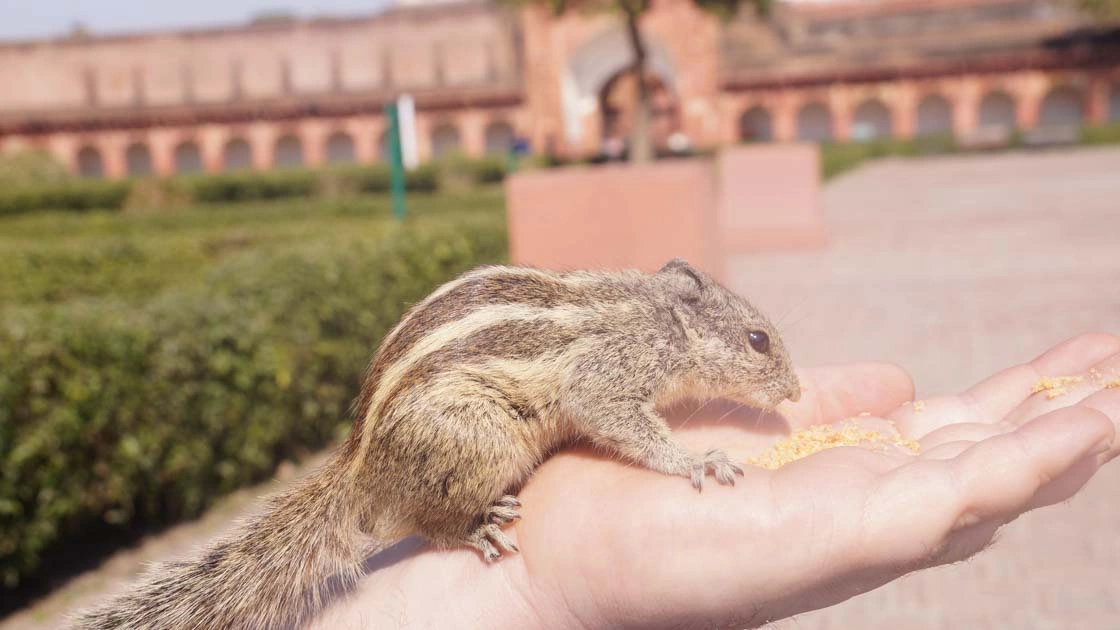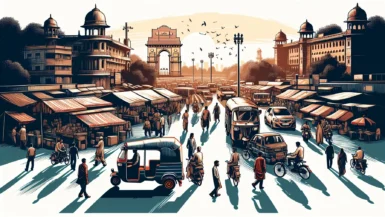India is a beautiful country, rich in culture and history. However, it is also home to many scams targeting unsuspecting tourists. While some scams are obvious, others are more concealed. This article highlights common scams in India and provides tips on how to avoid them.
Train Tickets at Travel Agencies
Train travel in India is enjoyable and affordable, with most journeys longer than 2 hours costing between 500-1,000 INR (~€6-€12). However, some travel agencies may try to convince you that trains are sold out and that you need to pay them hundreds of euros for a ticket. They might even have websites to verify that the trains are fully booked. To avoid falling for this scam, buy your tickets online using an Indian phone number or directly at train stations. If you choose to book through a travel agency, always verify the prices online before making a payment. Trusted online platforms like 12GO can also help you book tickets securely.
Taxis and Ride-Hailing Services
If you are in a taxi or ride-hailing service and the driver gets pulled over by the police, they might ask you to pay a fee, which is often a bribe. It can be challenging to refuse, especially if the driver insists they cannot continue without payment. Always agree on a fixed price with the driver before getting into the vehicle or ask them to use the meter. Using Uber or Ola can help you gauge fair prices and avoid overpaying. Additionally, be aware that toll fees are not included in the fare and should be paid separately.
People Offering Directions
Be cautious of people offering directions without being asked. They may help you and then demand money. Politely decline unsolicited help, but if you feel compelled to tip, give a small amount. This scam is common not only in train stations but also on the streets and at airports.
This is the scam we have experienced ourselves. Upon arrival on the train station of Agra, someone showed us to the right track. We initially thought that he worked for the railway station, until he asked for 500 INR (~€6). We refused to pay him the excessive amount, but we did give him 20 INR (~€0.25) in the end to get rid of him. From other travellers we heard that this is not only common in railway stations, but also on the streets and even at airports.
SIM Cards
Tourists often face scams when purchasing SIM cards. To obtain a SIM card, you must complete forms and provide a passport copy and a photograph. If a seller doesn’t ask for these requirements, it is likely not a legitimate SIM card. To avoid this scam, purchase SIM cards from official provider stores. Alternatively you can buy an eSIM online.
How to Help Beggars in India
It’s common to encounter beggars, especially young moms and children asking for drinks or food. They may have arrangements with shops to return goods for money. If you choose to buy food or drinks, make the items non-returnable by removing seals or packaging.
Hotel Names and Addresses
Booking a hotel in India can be confusing due to similar names and incorrect addresses on booking websites. Double-check the address and have an offline map available. Carry booking information, including the hotel’s phone number, to ensure you reach the correct location. If you find that the hotel’s address is incorrect, contact your booking provider afterward for assistance.
We have experienced this with a hotel close to Delhi Airport. We have contacted booking.com and they made sure that we did not have to pay for the night’s stay. We always choose to book with booking.com for their outstanding customer service.
Visiting Orphanages or other Charity Organizations
Some tours take tourists to fake orphanages or charity organizations where donations never reach the intended recipients. To avoid this scam, research reputable tours and organizations before visiting. Look for reviews and verify their legitimacy online.
Beware of Overpriced Snake Charmers
Snake charmers may invite you to hold a snake and then charge you a high fee. Always agree on a price beforehand if you decide to engage with them.
Don’t Fall for Free Gifts
If someone offers you a free gift, such as children or holy men in the streets, decline politely. They often expect payment despite claiming the gift is free.
While scams in India are prevalent, being aware and taking precautions can help you avoid them and enjoy a rewarding trip to this beautiful country. Remember to stay vigilant and informed, and you will have a safe and enjoyable experience.
Help us by supporting our blog
We want to give you honest reviews and keep this blog free. Therefore we added some affiliate links that might give us a commission at no additional cost to you. Support our blog by booking through our partners.





Leave a reply